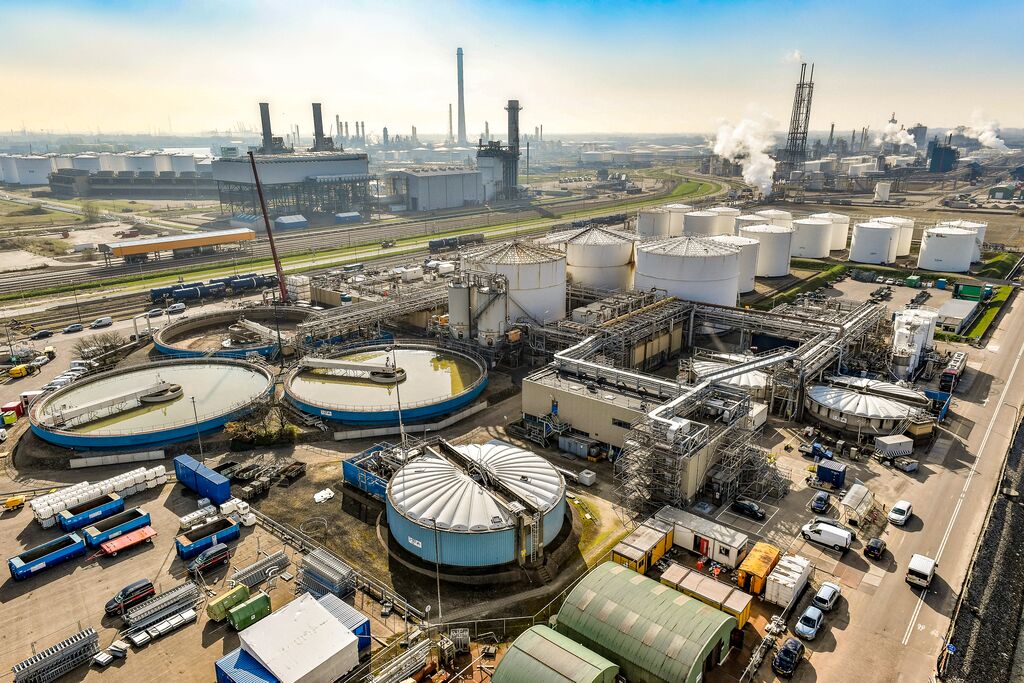

- Nieuws
-
Featured
-
Featured
- Recent
-
- Magazine
-
Featured
-
Featured
- Recent
-
- Kiosk
- Columns
- Bedrijveninfo
- Adverteren
Select Page

Foto: Shell
Shell kondigt aan een biobrandstoffenfabriek in Pernis te bouwen. Het gaat er duurzame vliegtuigbrandstof en hernieuwbare diesel produceren.
De biobrandstoffenfabriek krijgt een capaciteit van 820.000 ton per jaar. Het wordt de grootste fabriek in zijn soort voor de productie van duurzame vliegtuigbrandstof en hernieuwbare diesel. Naar verwachting gaat de plant in 2024 in bedrijf. De brandstoffen worden gemaakt uit afval, zoals gebruikt frituurvet, dierlijk vet en andere industriële en agrarische restproducten.
Met de hoeveelheden hernieuwbare diesel die deze fabriek kan produceren, wordt volgens Shell 2,8 miljoen ton CO2-uitstoot per jaar vermeden. De CO2-uitstoot van de fabriek wordt afgevangen en via Porthos in een leeg gasveld onder de Noordzee opgeslagen.
Shell kondigt ook aan vijf raffinaderijen tot ‘energie- en chemieparken’ te transformeren. Het bedrijf wil de productie van traditionele brandstoffen in 2030 met 55 procent verminderen en meer koolstofarme brandstoffen leveren. Daartoe is Shell Pernis omgedoopt tot ‘Shell Energie- en Chemiepark Rotterdam’. Het volgt hiermee het Energy and Chemicals Park Rheinland in Duitsland, dat in juli dit jaar een nieuwe naam kreeg.
“Shell is op weg naar een koolstofarme toekomst. Deze investering is een belangrijk stap omdat we Shell Pernis transformeren van een traditionele raffinaderij naar een duurzaam energiepark: het Shell Energie- en Chemiepark Rotterdam. Hiermee blijft het concurrentievermogen van het complex weer vele jaren in stand. Het gaat om een investering van honderden miljoenen dollar per jaar gedurende de bouw en het project creëert honderden banen”, zegt president-directeur Marjan van Loon van Shell.
Zie ook: Shell investeert in plasticrecycler
Shell announces that it will build a biofuels plant in Pernis. It will produce sustainable aviation fuel and renewable diesel.
The biofuel plant will have an annual capacity of 820,000 tonnes. It will be the largest plant of its kind for the production of sustainable aviation fuel and renewable diesel. The plant is expected to come on stream in 2024. The fuels are made from waste, such as used cooking oil, animal fat and other industrial and agricultural residues.
The quantities of renewable diesel this plant can produce will avoid 2.8 million tonnes of CO2 emissions a year, according to Shell. The CO2 emissions from the plant will be captured and stored via Porthos in an empty gas field under the North Sea.
Shell also announced the transformation of five refineries into ‘energy and chemical parks’. The company wants to reduce the production of traditional fuels by 55 percent by 2030 and supply more low-carbon fuels. This is why Shell Pernis has been renamed ‘Shell Energy and Chemicals Park Rotterdam’. In doing so, it follows the Energy and Chemicals Park Rheinland in Germany, which was renamed in July this year.
“Shell is on its way to a low-carbon future. This investment is an important step as we transform Shell Pernis from a traditional refinery into a sustainable energy park: the Shell Energy and Chemicals Park Rotterdam. This will maintain the competitiveness of the complex for many years to come. It involves an investment of hundreds of millions of dollars per year during construction and the project will create hundreds of jobs”, said Shell President Marjan van Loon.